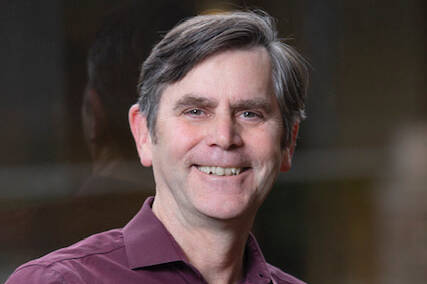Submitted by the Lopez Historical Society and Museum.
The Salish Sea was a busy place in 1792, according to historian Dr. John Lutz of the University of Victoria. Two Spanish galleons, under the command of Dionisio Galiano, as well as English ships under Captains George Vancouver and William Broughton, sailed through and around what are now known as the Gulf and San Juan Islands, and had extensive interactions with the indigenous Coast Salish people.
Dr. Lutz, a specialist in Pacific Northwest history, will present a talk on these early encounters between European explorers and the islands’ original inhabitants at 7:30 p.m. June 25 as part of the Lopez Historical Society and Museum 2022 Speakers’ Series.
Dr. Lutz said that many of the crew members on the Spanish and English expeditions kept written journals of their voyages. “Although colored by a European bias,” Dr. Lutz said, “the journals give us many descriptions and clues” about the native settlements and ways of life. Combined with ethnographic research and oral histories, he said, the accounts reveal “a complex, dynamic world, reeling from the effects of smallpox, but eager to engage the men the Coast Salish called ‘the hungry people.’”
Professor Lutz’s research focuses on Indigenous-settler relations and the history of racism in the Pacific Northwest. He co-founded a community-based ethnohistory field school with the Sto:lo Nation in British Columbia which has been running for 25 years. He is the author of Makúk: A New History of Aboriginal-White Relations and co-editor of the recently published, To Share Not Surrender: Indigenous and Settler Visions of Treaty Making in the Colonies of Vancouver Island and British Columbia.
Dr. Lutz said he currently works with the Songhees and Esquimalt First Nations on their litigation to enforce their treaty rights. An avid kayaker, he hopes to do some exploring of his own while visiting Lopez.
The evening talk will be held at Woodman Hall, 4102 Fisherman Bay Road.




